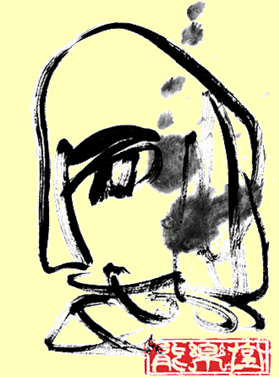Companies
These are selected short descriptions about theater companies represented in the SPIA educational archive.

Beijing People's Art Theatre
The Beijing People's Art Theatre was founded June 1952 in
Beijing, China, by four Chinese dramatists, including one
of the most prominent figures of modern Chinese theater Cao
Yu, who also became the company's first president. Since
its establishment, it has put on nearly 300 plays and become
the nation's most renowned drama company, building its reputation
on the high caliber of its acting and the strong organization
of its founders. The theater has served as a mirror of the
evolving political state of China and the development of
Chinese modern theater, and is famous for its productions
of classical Chinese and international plays, including in
its repertoire plays of Shakespeare and Arthur Miller. Perhaps
the most well known play of the People's Art Theatre is Lao
She's The Teahouse, which it has performed worldwide since
1980, becoming the first Chinese-spoken drama to travel abroad.
The company has produced versions of Shakespeare's Hamlet and Richard III under the direction of Lin Zhaohua, one of
its
regular directors who has also served as vice president of
the company.

Contemporary Legend Theater (CLT)
Contemporary Legend Theater was founded 1986 in Taiwan by a group
of Peking Opera players who hoped to counter the decline of traditional
Chinese Opera by integrating it with modern theater. Included in
this group was opera performer Wei Hai-Ming and actor/director
Wu Hsing-Kuo, who later became the company's Art Director. The
Theater's first play, The
Kingdom of Desire, was based on Shakespeare's
Macbeth and was designed to incorporate the singing, acting, and
acrobatic fighting of Chinese Opera with Western theater forms.
The result was a widely successful innovation of traditional Chinese
theater that had created a completely new aesthetic in Eastern
theater. Since its founding, CLT has been invited to perform worldwide
in countries such as Japan, Denmark, France, the United Kingdom,
and the USA. In addition to The
Kingdom of Desire, the company
has performed several other adaptations of Shakespeare including
The Tempest, a rendition of Hamlet called War and Eternity, and
a one-man version of King Lear known as Lear is Here. The theatrical repertoire also features
several Greek tragedies such as Medea and Oresteia, traditional
Chinese plays, and some modern works like Waiting for Godot.

The Lin Zhaohua Drama Studio was formed 1989 in China by Lin Zhaohua for the purpose of experimenting with drama forms in order to create a uniquely Chinese form of modern theater and to allow Lin more freedom in choosing and directing plays. The Drama Studio was formally registered as a legal theater company by the Chinese government in 2003 and is now one of the longest-running independent modern theater groups in China. As Lin Zhaohua's theater company, the Studio has worked closely with the Beijing People's Art Theatre, of which Lin is a regular director. One of the company's first plays was an adaptation of Hamlet directed by Lin in 1990, and since then the company has produced many classic Western dramas such as Richard III and Faust. In addition to providing a forum for Lin's experimentation with theater the Drama Studio also serves as a medium for fostering neglected theater talent, premiering the works of young artists throughout China. As a forerunner in the collaboration of traditional and modern theater, the Studio is highly involved in international theater exchange and hosts foreign playwrights and directors as they perform their work in China.

The Ku Na'uka Theatre Company was founded 1990 in Tokyo, Japan, by Miyagi Satoshi with the radical concept of two actors playing one role, an idea based on traditional Japanese puppet theater in which one actor tells the story while another performs the movements on stage. The company's name, ku na'uka, literally means "towards science" in Russian, a description that emphasizes the company's tradition of combining elements of diverse theater styles, particularly techniques of music and staging, in order to create a wholly new style. The multi-cultural influences used in creating the Ku Na'uka productions and the nature of the two actors, one role system allows for easy cross-cultural exchange, as demonstrated by the company's many collaborations with foreign artists and successful overseas tours in over ten countries worldwide. The Ku Na'uka Theatre's first production was a Japanese adaptation of Shakespeare's Hamlet, and the company has performed several of Shakepeare's other works including Macbeth and a Noh style Othello, as well as some classical Greek dramas such as Medea and Oedipus and more modern works by artists like Tennessee Williams and Richard Wagner.

Ryutopia Noh Theater Shakespeare
The Ryutopia Noh Theater Shakespeare Series was established 2004
in Niigata, Japan, by Kurita Yoshihiro in collaboration with the
Niigata City Performing Arts Center and Ryutopia Theater as an
ambitious project to stage all of Shakespeare's plays in the traditional
Japanese Noh theater style. The series was conceived with the dual
purpose of presenting comprehensive Shakespeare for the Japanese
audience and reviving the classical art of Noh theater. Kurita's
first production in the series was a version of Macbeth, a play
that he has revisited twice as part of the series. The Noh Shakespeare
Series has also produced adaptations of King Lear, The Winter's
Tale, Othello, and Hamlet. A shining moment for the series came
in April 2006, when the company was invited to perform The Winter's
Tale at the Craiova Shakespeare Festival in Romania. Two years
later, in the summer of 2008, the troupe took the production on
a tour of eight countries including Hungary, Poland, and Germany.

Subaru Theatre Company
The Subaru Theater Company was established in 1975 in Japan by the Institute of
Dramatic Arts Foundation through the unification of two parallels theatrical
groups, the Cloud Troupe and the Keyaki Troupe. These two groups split from a
common group in 1963, and their reunion was intended to bring harmony and
stability to Japanese theater. The Subaru Troupe, as the new combined effort
was called, opened its theater doors with a production of Albert Camus'
Caligula in 1976. Since that time the company has produced over 115
performances, including long-running productions of many well known Western
plays such as Death of a Salesman, A Christmas Carol, Flowers for Algernon, and
84 Charing Cross Road. In January 2007, the Subaru Theater Company officially
became its own corporation, ending its affiliation with the Institute for
Dramatic Arts Foundation and moving its offices to Ikebukuro in Tokyo. On
April 1, 2009, the company became public with assurances that its commitment to
high quality performance will continue despite the status change.
Website

TheatreWorks
TheatreWorks was established in Singapore in 1985 and since 1988 has been under
the Artistic Directorship of Ong Keng Sen. The company, dedicated to
international theater, is known for its reinvention of traditional performance
through the juxtaposition of cultures combined with innovative production and
artistic excellence. TheatreWorks hosts artistic initiatives such as the
International Centre of Asian Arts (ICAA) and the Singapore Creative Arts
Nucleus (SCAN) in an effort to nurture the growth of contemporary art in
Singapore and the evolution of an Asian identity through cultural development.
The company also supports local artists with educational programs like the
Writers' Laboratory. Since its foundation, the company has staged over 200
productions with performances in Singapore and overseas and is involved in
international theater projects and research. TheatreWorks also strives to
revive dying traditional art forms throughout Southeast Asia. Some of the
company's most well received productions include Desdemona, Search: Hamlet, and
Lear, adaptations of Shakespeare's Othello, Hamlet, and King Lear respectively.
Website
